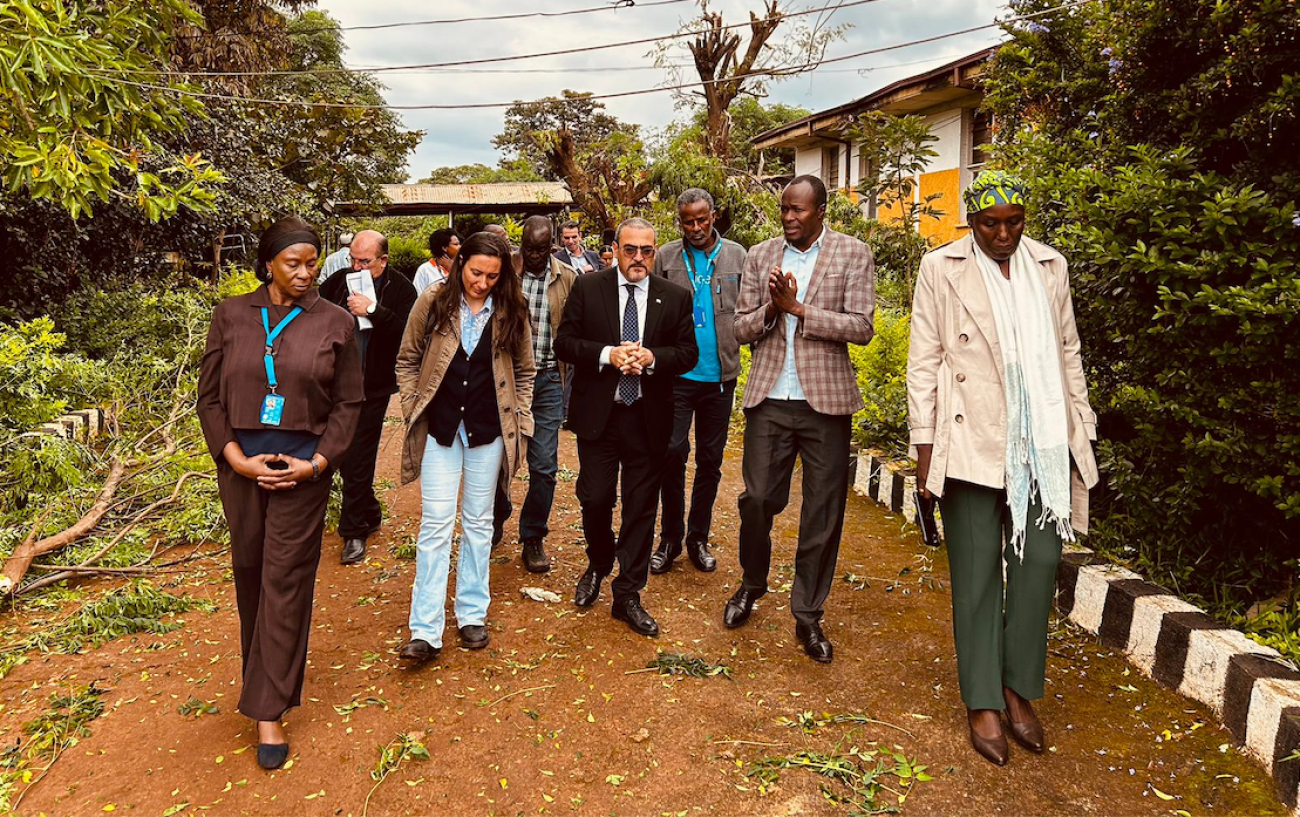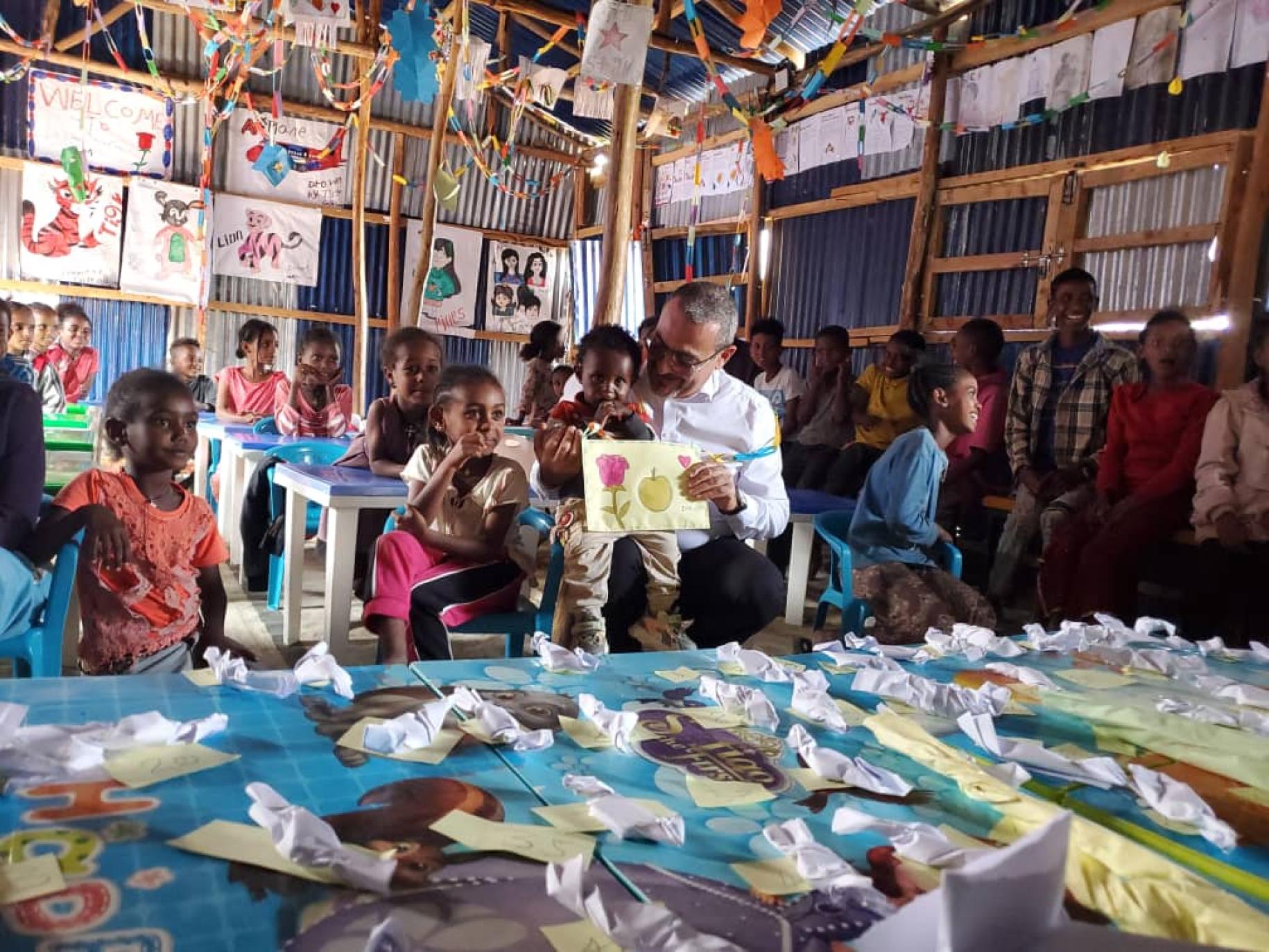RC in Focus: Standing with Ethiopia on its path to prosperity

With one of the fastest growing economies in Africa, a young population and a wealth of natural resources, Ethiopia is a country of hope and potential. Yet, as UN Resident Coordinator Ramiz Alakbarov warns, its path to peace and prosperity is not without challenges.
From navigating the impacts of environmental degradation, supporting displaced populations to transforming the country’s broken food systems, many obstacles to achieving the Sustainable Development Goals (SDGs) in Ethiopia remain.
But where there are challenges, there are also opportunities for innovation. Speaking to UN News earlier this month, Mr. Alakbarov explains how the UN team is embracing cutting-edge solutions to address these hurdles and harness Ethiopia’s full development potential.
An economy confronting transitions
“Ethiopia is a country which, for many years in a row, has registered robust economic growth. It continues to play an important role in the African continent in rallying support to environmental change and adaptation programmes. It also recently accessed the BRICs [group of major emerging economies, originated by Brazil, Russia, India and China]
But if we talk about Ethiopia we have to talk about the complexity of issues. It has a lot of achievements, but it also faces a number of other challenging transitions. Among them is the impact of environmental degradation. We are seeing that everywhere and Ethiopia is battling that.”
Rallying partners for digital solutions
“The UN strives to bring innovative solutions to the table, empowered by the digital age. We should not be offering solutions of the past.
We need to provide cutting-edge, integrated policy advice, and to rally around transformative change. In the context of Ethiopia, that means working with big national programmes, such as the climate, environmental and adaptation programmes and introducing e-governance and digital platforms to support better social services for the people.”
Creating jobs, transforming food systems
“For too long countries have relied on food distributions and food donations. But [in Ethiopia] we can instead support the development of the agricultural sector, investing in agri-food systems, expanding the linkages between the people and the market so people take charge of their own lives, and become active agents of the change.
In the regions I’ve visited where there are internally displaced people, there was a very heavy reliance on food assistance. And now, as we face less availability of resources, we’ve shifted to the development of agri-food systems. UN agencies like the Food and Agriculture Organization (FAO), the World Food Programme (WFP) and the United Nations Development Programme (UNDP) are working together to create jobs, so people can sell their products and make a sustainable living. This is part of the transformation of the food system.”
Partnership with the private sector for a vibrant future
“We need to remember Ethiopia is a country with vast natural resources and a very young and active population, despite the images of the conflict. What we have is actually a country with a very vibrant economy and a lot of intellectual potential. There is a lot of potential in bringing into the picture more nontraditional actors to support economic growth, specifically the private sector and others outside the traditional aid sector, and which link real time people with the real time economy.”

More funding to meet development needs
“We are working both on the humanitarian and the development front, and it is important to continue to do so. We were able to reach more than 17 million people with various types of assistance this year. Our funding levels have unfortunately not been commensurate with the ask of USD 3.9 million at the beginning of the year. We’ve now revised that request to USD 2.2 million. Currently, slightly over 30 per cent of it is funded. More resources are needed.”
The excerpts in this story were edited for clarity. Listen to the full interview on UN News. To learn more about the work of the UN in Ethiopia visit Ethiopia.un.org













